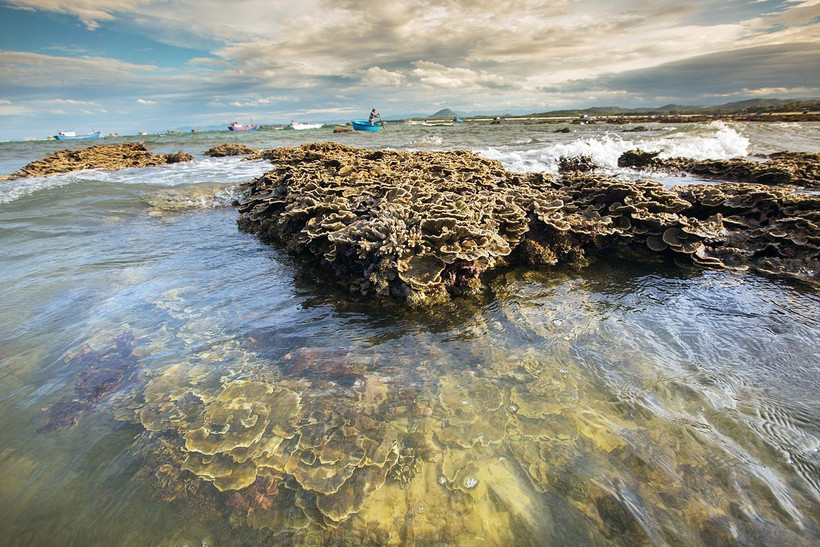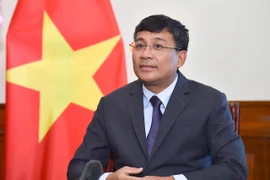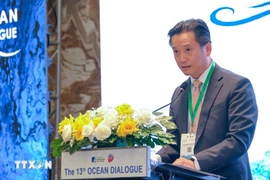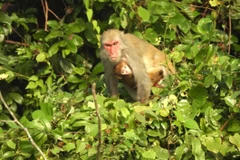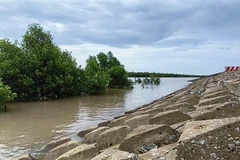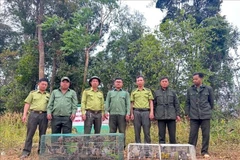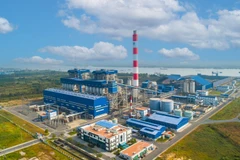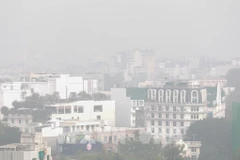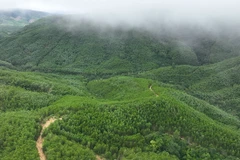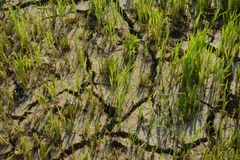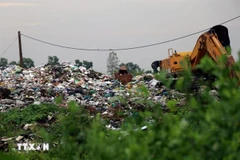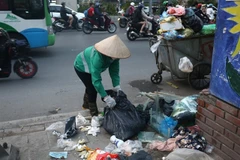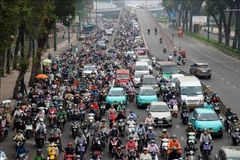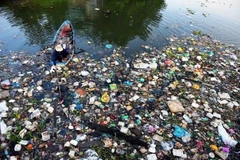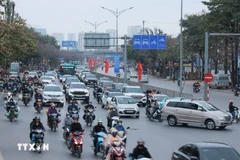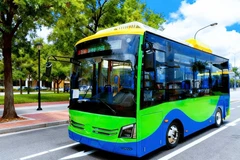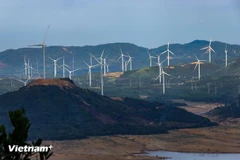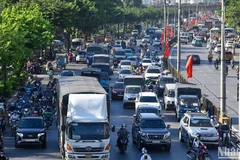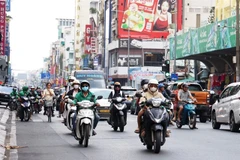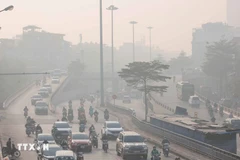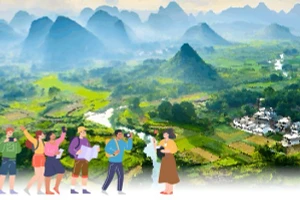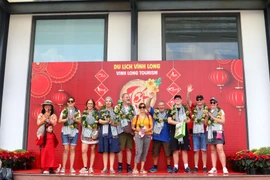Hanoi (VNA) – Prime Minister Pham Minh Chinh’s attendance at the 3rd United Nations Ocean Conference (UNOC 3) reaffirms Vietnam’s position as a proactive, responsible member of the international community with drastic efforts to implement tangible measures to conserve marine resources and ensure their sustainable use, while actively contributing to global efforts to realise the Sustainable Development Goal No.14 (SDG 14).
UNOC 3 will take place from June 9-13 in Nice, France, under the theme of accelerating action and mobilising all stakeholders to conserve and sustainably use the oceans.
Vietnam became the 149th member of the UN on September 20, 1977, and over nearly five decades has grown into an active and responsible UN member, particularly in driving forward the SDGs.
Vietnam has demonstrated its strong commitments by participating in global sustainable development forums, signing multiple free trade agreements, and attracting support from international partners for the implementation of the SDGs.
The country has proactively incorporated sustainability into its multilateral engagement, consistently showing that it is a reliable, constructive member of the international community. Vietnam is also working alongside global partners to tackle shared challenges such as maritime security, disaster risks, climate change, food security, and water resource management.
Vietnam is currently pursuing a strategy for sustainable marine economic development rooted in green growth, biodiversity protection, and ecosystem conservation. It seeks to balance economic and environmental priorities, while maximising the ocean’s potential as a key driver of national economic growth. Vietnam is also ramping up efforts to combat climate change and sea-level rise, while expanding regional and international cooperation.
These priorities align closely with the aims of UNOC 3. At the invitation of UN Secretary-General António Guterres and French President Emmanuel Macron, PM Chinh will attend the conference as a special guest.
Vietnam previously participated in UNOC 1 and UNOC 2, contributing actively to plenary and thematic discussions. At UNOC 3, PM Chinh will deliver a keynote address on behalf of the Association of Southeast Asian Nations (ASEAN), reaffirming the region’s shared commitment to international law, including the 1982 UNCLOS, and collective solutions to ocean-related challenges. He will also share Vietnam’s expertise in realising the SDG on conservation and sustainable use of oceans, seas and marine resources.
He will also co-chair a high-level summit on delta regions – along with the Presidents of Colombia and Iraq – highlighting the impacts of climate change on these vulnerable areas and Vietnam’s readiness to contribute to global solutions.
The PM will participate in economic and maritime-related engagements in Monaco, at the invitation of the Government of the Principality of Monaco, alongside other special guests.
Deputy Minister of Foreign Affairs Le Thi Thu Hang stressed that the PM’s attendance at UNOC 3 underscores Vietnam’s role as an active, responsible international partner, committed to multilateralism, the UN, and the rule of international law – especially the United Nations Convention on the Law of the Sea 1982 (UNCLOS) – in addressing ocean challenges. The country is ready to strengthen global cooperation in pursuit of a blue, peaceful, sustainable, and prosperous ocean, in line with the conference’s overarching goals.
The oceans are becoming increasingly vital to global socio-economic development and geopolitics. According to the OECD, the ocean economy is forecast to exceed 3 trillion USD by 2030, making it the world’s fifth-largest economy. The oceans are essential for global trade, food security, sustainable energy solutions, and maritime transport. However, achieving a truly inclusive and sustainable ocean economy will require an estimated 175 billion USD in annual investment, along with stronger cooperation between governments, intergovernmental organisations, the private sector, and civil society.
Beyond their economic value, the oceans play a crucial environmental role by absorbing much of the excess heat generated by fossil fuel combustion. Protecting the oceans is therefore not only about safeguarding ecosystems, but also about preserving livelihoods – especially for coastal nations where the oceans represent both a natural wonder and a major economic opportunity.
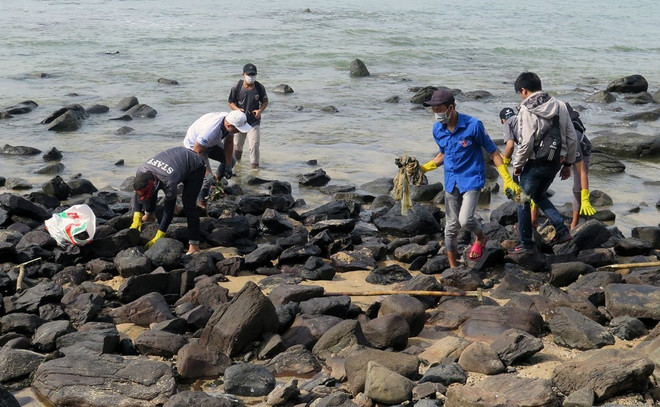
International collaboration is essential to prevent the depletion of marine resources, combat ocean acidification, protect marine ecosystems, reduce overfishing, and address marine pollution. In recent years, ocean conservation has received growing international attention.
Key milestones include the Kunming–Montreal Global Biodiversity Framework (GBF) adopted in 2022, which aims to conserve and restore at least 30% of the planet’s land and sea areas by 2030. The adoption of the High Seas Treaty in 2023 marked another significant step, allowing for the establishment of marine protected areas where activities such as fishing or mining may be restricted. However, with only 28 countries having ratified the treaty so far, the required 60 ratifications for the treaty to enter into force remains some way off.
While progress has been made, moving from commitment to concrete action remains a challenge. Recent studies warn that the goal of protecting 30% of the oceans by 2030 is increasingly at risk due to climate change, acidification, plastic pollution, and overfishing. Other compounding issues, such as natural disasters, pandemics, and food insecurity, continue to threaten sustainable global development.
At the same time, a lack of funding is hindering progress toward achieving the broader Sustainable Development Goals (SDGs) by 2030. The 1982 UNCLOS remains the principal legal framework governing maritime activities, yet its integrity also faces growing challenges.
As such, current achievements are not sufficient to safeguard the health of the oceans. If commitments are not urgently fulfilled, marine protected areas risk becoming merely symbolic. Experts agreed that protecting the oceans is not a challenge any single nation can solve alone – it requires united global action.
Against this backdrop, the UN Ocean Conference (UNOC) – held every three years – serves as a global platform to mobilise action toward SDG 14. Co-hosted by one developed and one developing country, the conference brings together world leaders, experts, and stakeholders to develop solutions and form partnerships.
The first UN Ocean Conference (UNOC 1) took place in New York in 2017, co-hosted by Sweden and Fiji. The second (UNOC 2) was held in Lisbon in 2022, co-chaired by Portugal and Kenya, focusing on science-based and innovative approaches.
This year’s UNOC 3, co-hosted by France and Costa Rica, will seek to build global consensus and secure funding for ocean conservation, at a time when nations remain divided on key issues such as deep-sea mining, plastic waste, and overfishing.
The conference will include 10 plenary sessions and 10 thematic dialogues running in parallel with the participation of heads of state and government from many countries. It is widely viewed as a critical milestone on the road to achieve the SDGs by 2030, helping to guide marine policy for global, regional, and national governance, as well as programmes led by international and regional bodies. The discussions are expected to shape long-term strategies for financial investment, scientific research, and marine management, with far-reaching impacts./.
